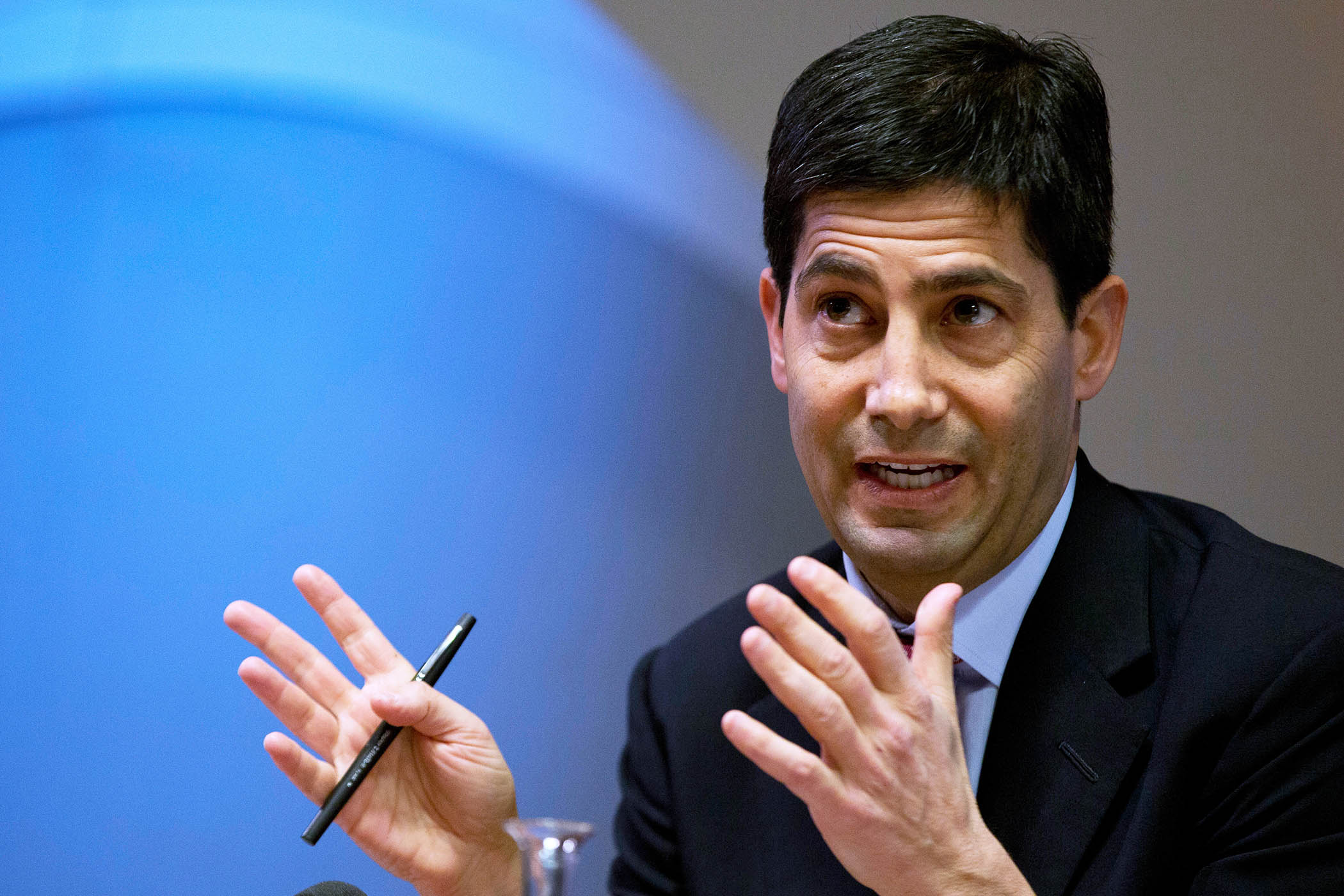Keir Starmer isn’t the only one changing the guard. In the past week, the UK’s tech and business landscape has been hit by a string of high-profile resignations from institutions all created to parade Britain’s scientific prowess on the world stage.
On Tuesday, a page quietly appeared on the website of Ellison Institute of Technology (EIT), a group of mainly for-profit companies based in Oxford funded by the US billionaire Larry Ellison, announcing the resignation of its president, Sir John Bell – an eminent scientist known for his role as broker between business and government during the Covid-19 vaccine rollout.
Shortly afterwards, it emerged that Jean Innes, the chief executive of the Alan Turing Institute, a world leader in AI research, was stepping down after months of staff revolt.
On Friday, the government announced that Baroness Poppy Gustafsson, the former CEO of cyber defence company Darktrace, would be leaving her post as head of the newly created Office for Investment – dubbed a “concierge service” for foreign investment – after less than a year into the role.
She will be replaced by Jason Stockwood, the former Grimsby Town FC chair who has held executive or director roles at Simply Business, Skyscanner and Match.com.
All three departures come as the government seeks to advertise the UK’s strengths in AI, life sciences and deep tech as a remedy for the country’s lacklustre growth. Last week former tech secretary (now business secretary) Peter Kyle delivered a speech at Mansion House extolling the UK’s “entrepreneurial zeal”, its roadmap for AI and deep pools of scientific talent.
A source close to the matter said Prof Bell had begun to find it “difficult” working for Oracle founder Ellison, who is the world’s second richest man, according to the Bloomberg Billionaire’s Index.
Within the past four months, two members of EIT’s executive team – Charlie Foreman, the EIT’s chief financial officer, and Tamsin Berry, who was chief of staff to Bell – had left the organisation after one of Ellison’s increasingly frequent visits to the UK.
Related articles:
After the visit, “changes [in staffing] were made quite quickly”, said one former staffer, who suggested Ellison was unhappy about how the institute was run. A source speaking about Berry’s departure said: “She’d been pushed out because the top Ellison team, presumably Larry, couldn’t see what her purpose was given there was already a chief operating officer and a [global] president.”
The EIT did not respond to requests for comment.
Newsletters
Choose the newsletters you want to receive
View more
For information about how The Observer protects your data, read our Privacy Policy
Bell’s departure was announced by Ellison himself in an all-staff email seen by The Observer, during his visit on Tuesday. “I will miss him,” it said. “All of us have benefited from having such a distinguished scientist at the helm during these early years.”
Founded in 2023, the EIT has plans to grow into 300,000 sq ft of research laboratories, and education and meeting spaces around Oxford. The billionaire’s funding has gone towards buildings designed by Norman Foster and a $200m property in Mayfair as a London hub.
The relationship between Oxford University and the for-profit institute isn’t entirely clear. According to one staff member, the company was set up so that for every stream of work, a “strange internal company with a nominal CEO” would be established. It’s understood that people leading these streams, already well-rewarded compared to being on the university payroll, can receive equity shares in companies that are successfully spun out, while Ellison’s companies are empowered to take a 51% stake – sometimes more.
EIT Oxford Holdings LLC, a company affiliated with the institute, has been steadily growing a stake in Oxford Nanopore, a biotech company that has struggled on the UK’s junior stock market since it was spun out of the university in 2005. Four weeks ago its founder Gordon Sanghera said he would be stepping down.
It is understood that Ellison has given funding towards researchers at the EIT to explore the rapid testing of vaccines using AI. The results, if successful, could be highly lucrative – but it’s unclear whether the research will be conducted in the university or in EIT labs, and who will ultimately control the IP and profit streams.
Sir John Bell will be replaced by Santa Ono, former president of the University of Michigan. Ono had been touted to run the University of Florida, but was ousted after a conservative backlash for his support of diversity and inclusion initiatives. An ex-staffer said the leadership change would provide a much-needed “reset”.
A company affiliated with EIT has been steadily growing a stake in biotech company Oxford Nanopore
A company affiliated with EIT has been steadily growing a stake in biotech company Oxford Nanopore
The future of the Alan Turing Institute is less certain. In July, Kyle called for new leadership and told the institute to pivot toward defence, national security and “sovereign capabilities” – and threatened to pull funding if it did not. Public sector funding represents almost half the Turing’s annual income. A source close to the Turing said the institute would step up its work on defence following Kyle’s directive, but staffers said there remains internal confusion about priorities, and unhappiness with other senior members of leadership, including the chief scientist Mark Girolami.
They question is whether Innes’s resignation will be enough to turn around an institute that has seen years of discontent. “Leadership are all clearly hoping that Jean going is enough,” said one employee. “I think it’s a measure of just how out of touch they are with reality.”
Unless the institute restructures, it will remain in a standoff with the government and risks losing crucial funding, two sources suggested. A source close to Doug Gurr, who remains chair of the Institute, in addition to his roles as interim chair of the Competition and Markets Authority and director of the Natural History Museum, said they “strongly encourage Doug to step away”. His leadership represents an “era problem”, the source said.
Both institutes represent “a massive opportunity” for the UK, said a former Ellison staffer. The EIT in particular “is big enough and it's got enough money that you could make it extraordinary”.
The tumult will not allay fears that UK plc is at risk of failing to capitalise on new flows of talent. In July, the government announced a £54m Global Talent Fund to attract between 60-80 of the world’s top researchers. But some argue this pales in comparison with a €500m “super-grant” package for the period 2025–2027 put forward for similar aims by the EU.
Stockwood faces an uphill challenge to coax investment into the UK, and takes on the role – which will advise both Treasury and the Department for Business and Trade – weeks before an investment summit is due to take place in Birmingham.
A government source said that Stockwood’s appointment was an attempt to “bolster credibility with industry, particularly the tech and financial services sectors”.




